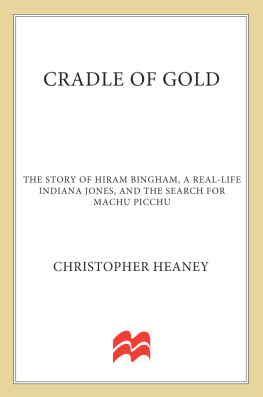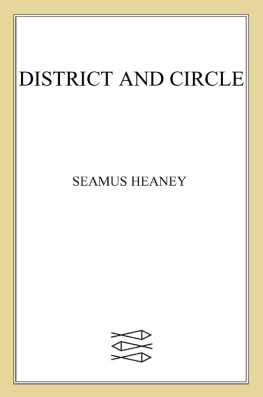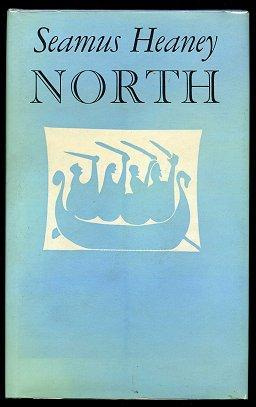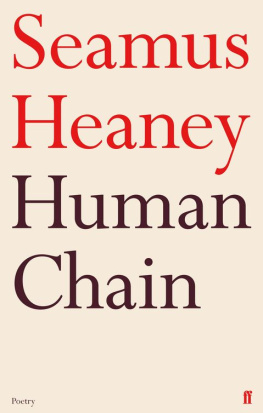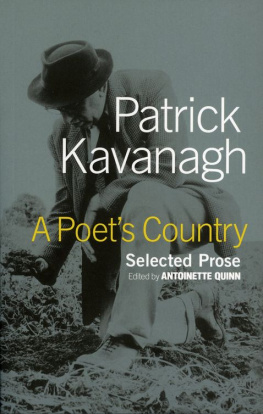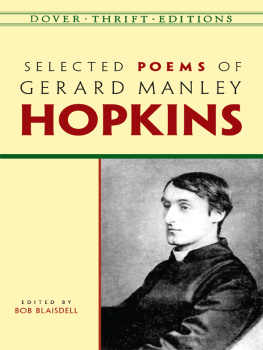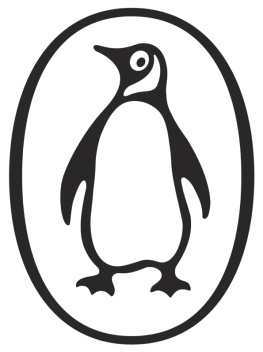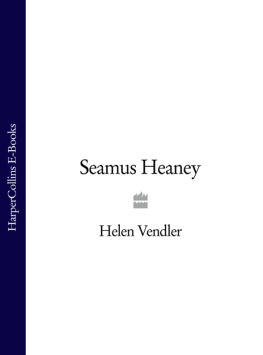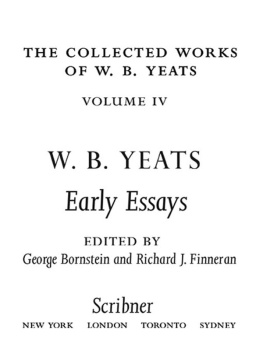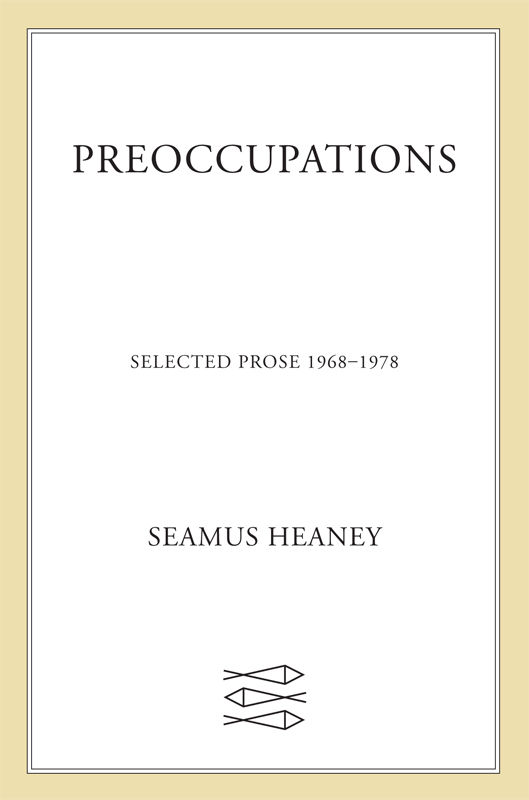
The author and publisher have provided this e-book to you for your personal use only. You may not make this e-book publicly available in any way. Copyright infringement is against the law. If you believe the copy of this e-book you are reading infringes on the authors copyright, please notify the publisher at: us.macmillanusa.com/piracy.
Contents
for Seamus Deane and Thomas Flanagan
Acknowledgements
The author and publisher would like to acknowledge the following: BBC Radio, Carcanet Press, Critical Inquiry, Education Times, the Guardian, Hibernia, Honest Ulsterman, the Irish Times, the Listener, Penguin Books, Proceedings of the British Academy, Radio Telefs Eireann, Threshold and The Times Literary Supplement.
Acknowledgements are also due to Andr Deutsch Ltd for permission to quote from Mercian Hymns (1975) by Geoffrey Hill; and to Mrs Katherine B. Kavanagh and Martin Brian & OKeeffe Ltd for permission to quote from Patrick Kavanaghs poems.
Foreword
Except for a couple of reviews and a Listener article of 1971, all of the pieces printed here were written during or since 1972. Yet long before that critical year the sediment out of which many of them spring had been gathering, especially in Belfast in the mid-sixties, when a group of us who had just started to write used to talk poetry day after day with an intensity and a prejudice that cannot but have left a mark on all of us. Then at Easter in 1972 I decided to resign from my entirely agreeable job in the English Department of Queens University, and that summer I moved with my family to Glanmore in Co. Wicklow, determined to put the practice of poetry more deliberately at the centre of my life. It was a kind of test.
All that I really knew about the art was derived from whatever poetry I had written, and from those poets who had helped me to write it. I had a half-clarified desire to come to poetic terms with myself by considering the example of others, and to try to bring into focus the little I knew. So when my freelance activities inevitably led to lecturing and reviewing, the focusing began on that occasional basis. But I hope it is clear that the essays selected here are held together by searches for answers to central preoccupying questions: how should a poet properly live and write? What is his relationship to be to his own voice, his own place, his literary heritage and his contemporary world?
The longer pieces were written to be delivered from the podium so now and again that lecturing note creeps in. And if there is sometimes a strait-laced quality about the writing, that too is all part of the makings of a music, the slightly constricted utterance of somebody who underwent his academic rite of passage when practical criticism held great sway in the academy. Nevertheless, I am grateful for that discipline: as Finn McCool said in his time, the best music in the world is the music of what happens.
We go on, of course, to blunder after the music of what might happen, a quest which requires confidants and mentors, and this book is a response to some who came to my assistance. A number of the essays are obviously a matter of breaking bread with the dead, an activity which W. H. Auden judged essential to the life of poetry. Others are just as clearly engagements with the achievements of the living; and others still are inspections of myself, although, as Patrick Kavanagh insisted, the self is interesting only as an example.
Many people who are not mentioned in these pages have left their mark upon them: among many excellent teachers, Sean B. OKelly at St. Columbs College and Laurence Lerner at Queens, both of whom quickened my love of poetry and, for better or worse, helped to start me writing about it; Michael McLaverty, who lent me Patrick Kavanaghs A Soul for Sale late in 1962; Edna Longley, whose comprehension of Edward Thomas extended into a reading of the contemporary English poets discussed here along similar lines; Michael Allen, the reader over my shoulder; and Helen Vendler, who encouraged me to trust my critical capacities even after she had read some of these chapters in manuscript. To the friends named on the dedication page I owe a special debt of gratitude; over the years, their conversation, their writings and their formal lectures have given me food for the thought that nurtured much of what follows. Indeed in one or two places it appears entirely undigested.
Since I have always needed to be goaded into this kind of work, I am in more than the usual debt to the editors who commissioned and patiently awaited the different articles and reviews, and to the sponsors of the lectures. And since nobody except my wife Marie has been privy to the turbulence in the house as I kicked against these goads, I have to thank her more than anybody for putting up with and encouraging me during the whole uncertain business.
At the enquiry which preceded the granting of a patent to the Abbey Theatre I was asked if Cathleen ni Houlihan was not written to affect opinion. Certainly it was not. I had a dream one night which gave me a story, and I had certain emotions about this country, and I gave those emotions expression for my own pleasure. If I had written to convince others I would have asked myself, not Is that exactly what I think and feel? but How would that strike so-and-so? How will they think and feel when they have read it? And all would be oratorical and insincere. If we understand our own minds, and the things that are striving to utter themselves through our minds, we move others, not because we have understood or thought about those others, but because all life has the same root. Coventry Patmore has said, The end of art is peace, and the following of art is little different from the following of religion in the intense preoccupation it demands.
W. B. YEATS , Samhain: 1905, in Explorations
I
Mossbawn
1. Omphalos
I would begin with the Greek word, omphalos, meaning the navel, and hence the stone that marked the centre of the world, and repeat it, omphalos, omphalos, omphalos, until its blunt and falling music becomes the music of somebody pumping water at the pump outside our back door. It is Co. Derry in the early 1940s. The American bombers groan towards the aerodrome at Toomebridge, the American troops manoeuvre in the fields along the road, but all of that great historical action does not disturb the rhythms of the yard. There the pump stands, a slender, iron idol, snouted, helmeted, dressed down with a sweeping handle, painted a dark green and set on a concrete plinth, marking the centre of another world. Five households drew water from it. Women came and went, came rattling between empty enamel buckets, went evenly away, weighed down by silent water. The horses came home to it in those first lengthening evenings of spring, and in a single draught emptied one bucket and then another as the man pumped and pumped, the plunger slugging up and down, omphalos, omphalos, omphalos.
I do not know what age I was when I got lost in the pea-drills in a field behind the house, but it is a half-dream to me, and Ive heard about it so often that I may even be imagining it. Yet, by now, I have imagined it so long and so often that I know what it was like: a green web, a caul of veined light, a tangle of rods and pods, stalks and tendrils, full of assuaging earth and leaf smell, a sunlit lair. Im sitting as if just wakened from a winter sleep and gradually become aware of voices, coming closer, calling my name, and for no reason at all I have begun to weep.


